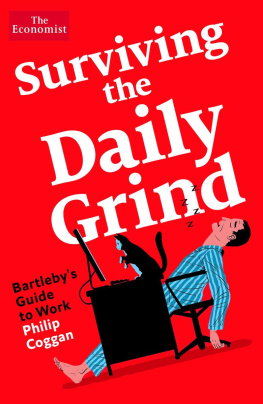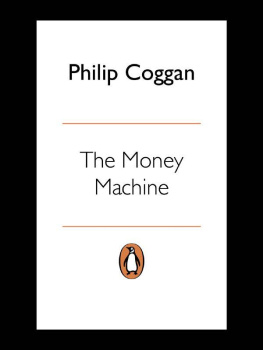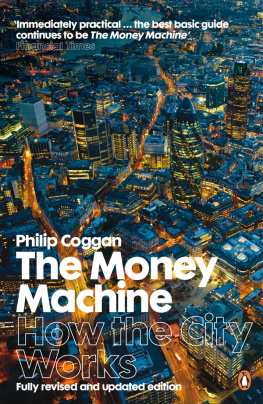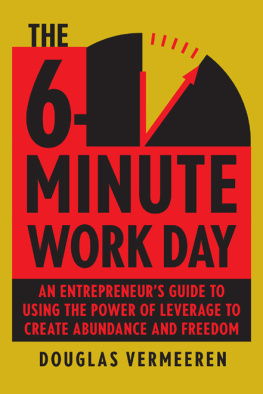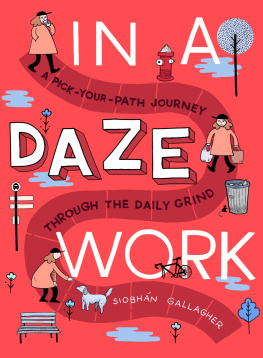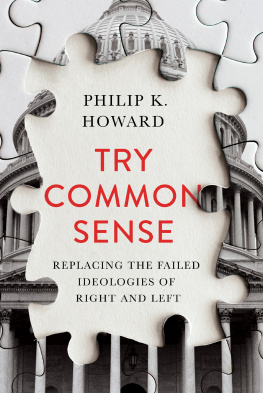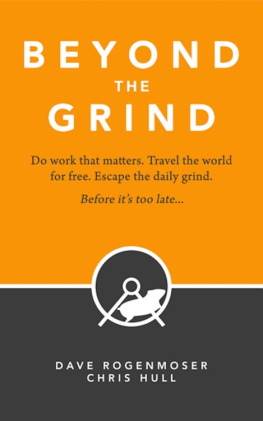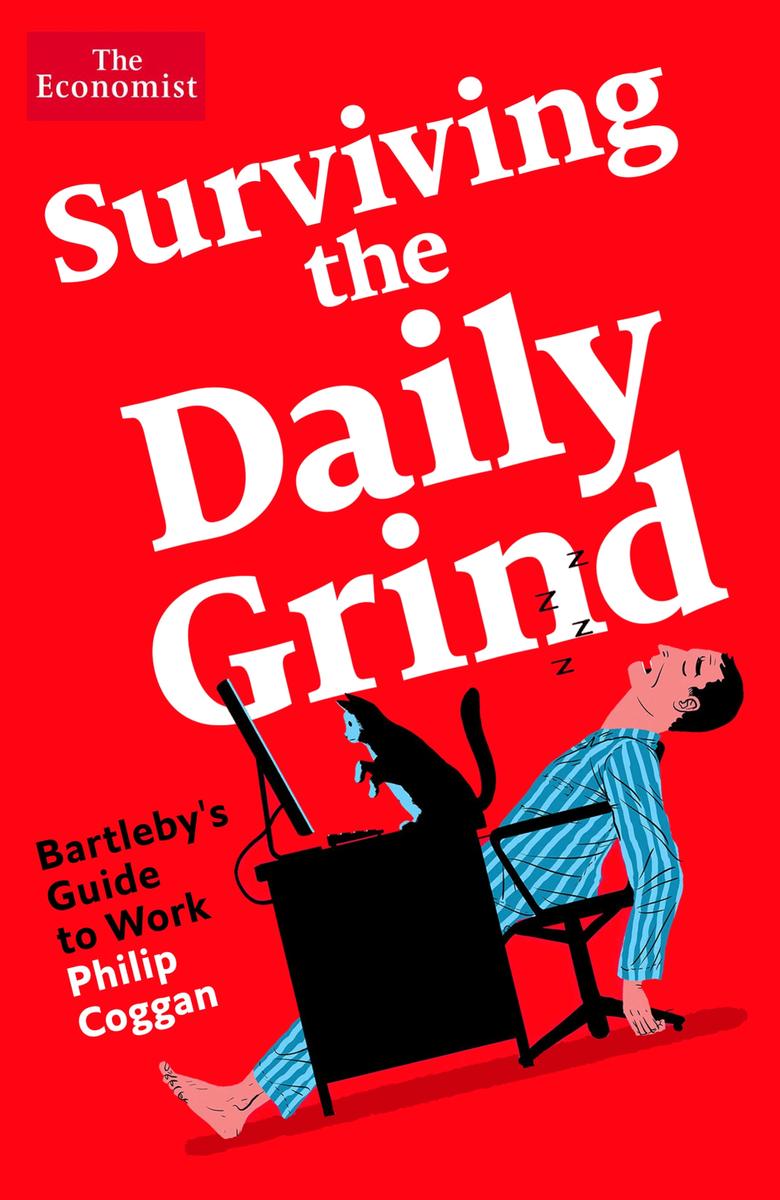I magine that this is the plan for your working day. First, you have a two-hour Zoom meeting in which your manager will outline a holistic approach to the companys strategy. Then there will be a call from the marketing team which plans to rename your group the operational solutions team. Finally, there will be a mandatory lecture under the guise of your companys thought leadership programme. Does the prospect fill you with dread? Do you wish you could create an avatar who could nod sagely and say quite right occasionally, to save you the bother of attending any or all of these events?
Then this is the book for you. It is designed for workers who find their job frustrating (but need the money) and for managers who have learned to talk in corporate waffle but wish they could express themselves more clearly. It is based on the things I have learned as the Bartleby columnist on management and work at The Economist but also in a 40-year career at organisations, large and small.
The book is not a compilation of columns but, inevitably, x some of the ideas and phrasing will have appeared before in The Economist. Writing at book length has given me the opportunity to organise and hone the concepts that sustained the column over the years.
At the end of the book, readers will understand why modern work is organised in a way that can be so frustrating. And the book will also show that things dont need to be this bad; there are ways of managing people that are less bureaucratic, that allow individual workers to be more creative and spend less time in meetings and do not involve language that is seeped through with obfuscation and circumlocution. But enough. This is not the time to circle back or reach out. Let us get on with it.
I t is one of the great mysteries of modern working life. Why do so many managers pollute their utterances with so much inane jargon? When we leave home and head to the office, it is almost as if we have to speak a different language. This language is one of the reasons why work can be so tiresome.
To understand why this climate has developed, we must call on the spirit of the great C. Northcote Parkinson, a 20th-century management writer, who created Parkinsons law that work expands so as to fill the time available for its completion. This new guide will propose a number of new working laws and amend some old ones.
The first law is: jargon abhors a vacuum. All too often, executives know they have nothing significant to say in a speech or to write in a memo. But they are aware they have to say something and, furthermore, that they have to speak at some length. So they use long words, obscure jargon and buzzwords to fill the space.
The second reason for managers to use jargon is to establish their credentials. By using these terms in their vocabulary, they feel they are demonstrating their expertise and fitness to rule. Like a priest intoning the liturgy in Latin or a football supporter chanting the team song, their language shows they belong to a tribe.
The managers colleagues or subordinates are unlikely to challenge them on their use of banal language or impenetrable jargon, for fear of causing offence or revealing their own ignorance. Social convention makes them reluctant to declare that the emperor has no clothes or makes no sense.
Of course, most managers are perfectly decent people. In a sense they are trapped in their roles, just as a heavy-set Hollywood actor will become typecast as a villain. They use the jargon because it is expected of them. For a long time, managers had their own dress code as well; a suit and tie for men, a jacket, blouse, skirt and heels for women. The rise of Silicon Valley casual (T-shirt and chinos) has created more freedom in the last 20 years (although more for men than for women). The language is just another version of the uniform.
Another reason for the flourishing of corporate babble is the ephemeral nature of much modern work. Most modern humans are not hunting game, growing crops or even making physical objects tasks where the aim is clear and output can be easily measured. Instead most people in the developed world work in the service sector. Some service sector activity has straightforward aims: cutting hair or serving meals, for example. But lots of us work in jobs with titles that would have baffled our ancestors: creative director, logistics coordinator or social media curator. Those who hold these jobs may not be entirely sure how to measure success. So they try to look busy and, in doing so, invent activities to keep their colleagues and subordinates busy.
Thus the irritations of modern working life are not confined to language; they also relate to managerial behaviour. Part of the satisfaction of being a manager comes from telling other people what to do, rather than being told what to do yourself. Power, even in small things, can be exhilarating. If you want subordinates to attend a meeting, you can insist on it; the same goes for evening functions and 7.30am breakfasts. Allowing underlings to miss these occasions would undermine the managers authority. Chimps grin to gain acceptance and show submission to the leader of the group; office workers show up to their bosss unnecessary meetings to achieve the same effect.
In turn, junior managers are driven by the need to meet the demands of the corporate hierarchy. There is an old rhyme:
Great fleas have little fleas upon their backs to bite em, And little fleas have lesser fleas, and so ad infinitum.
The same system applies in companies, but in reverse. Each layer of management has another layer above it all the way up to the chief executive. And in a big company, the chief executive has to worry about the board of directors and the shareholders. A corporate culture is set from the top. Junior managers may worry that, if they appear too relaxed with their subordinates, they will not be marked for promotion. Business magazines are full of pieces lionising chief executives who get up at 4am to deal with their e-mails; they spare less thought for the poor schmucks who wake to find five messages from their boss before they have had their breakfast.
When managers are uncertain about the usefulness of their own activities, they are naturally tempted to create artificial goals for their teams to meet; boxes to tick and lists to check. It is a long-established rule that too much bureaucracy is a characteristic of bad organisations. The Simple Sabotage Field Manual, compiled by the OSS (the precursor to the CIA) during the second world war, had a number of suggestions for managers who want to undermine the work of their team. These include insist on perfect work in relatively unimportant products; send back for refinishing those that have the least flaw and multiply the procedures and clearances involved in issuing instructions, pay checks, and so on. See that three people have to approve everything where one would do.

